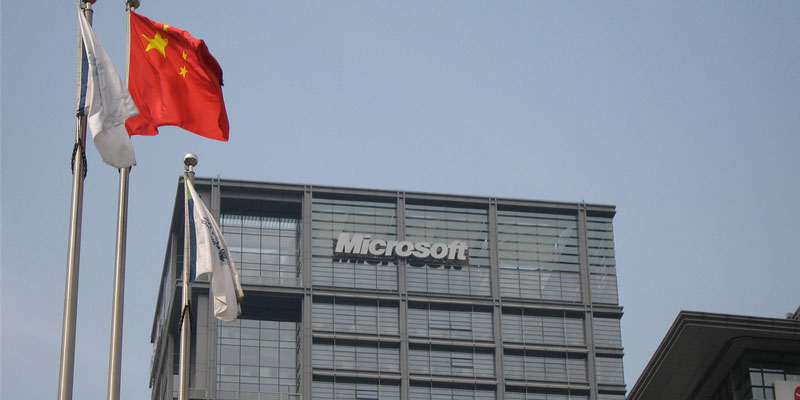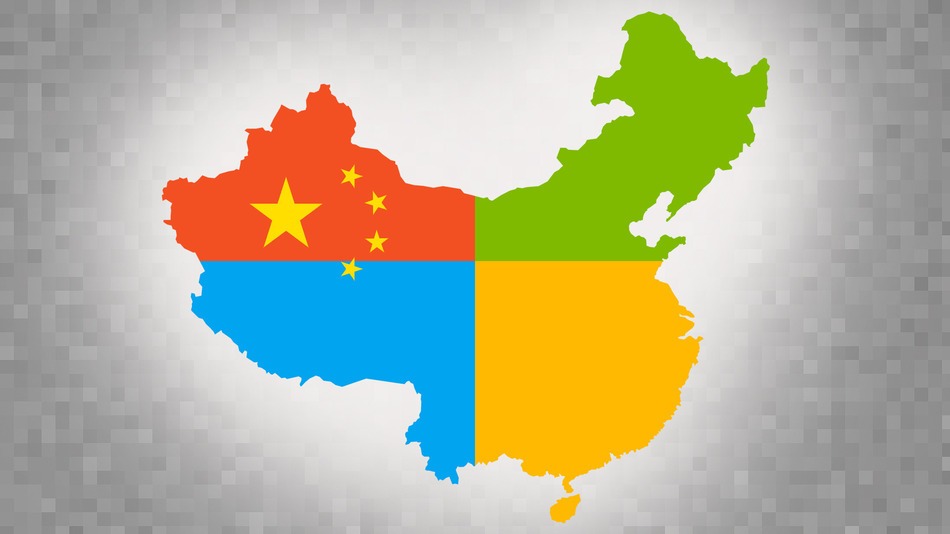Microsoft’s 20 plus years of official presence in China has been a story of compliance and accommodating every demand and request by Chinese government. Unlike in the cases of other tech giants, Google and Facebook, any online services provided by Microsoft in China have never been blocked. By all counts, Microsoft was expected to do well, first by entering the market early, then by having good relationship with the authorities.
Back in 2007, Bill Gates told Fortune that he expected China to be Microsoft’s biggest market, “though it might take 10 years.”. Those comments were made during a visit to Beijing when Gates was awarded an honorary degree from Tsinghua University and met with four members of China’s ruling Politburo.
Did the policy of accommodating the authorities actually helped Microsoft in China?
Unfortunately, Gates’ “Chinese dream” has never materialized. While Microsoft doesn’t release specific figures, it is estimated that China contributes less than 10% of the revenues. Sales of Microsoft’s biggest earner, Windows OS and MS Office are almost non-existent in China where 95% of installation are pirated. Although, those products run on almost every computer in China, the market share simply can’t be translated to revenues.
First, back in 1992 when Microsoft just entered the market, they tried to get tough with existing users using illegal software copies. They sued some Chinese companies but ultimately lost, angering the authorities in the process. At the same time they tried to sell legal versions of their software at the cost of several monthly wages while a pirated copy could be bought at a street corner for less than $1. Not surprisingly, that didn’t work either. Fast forward to the present, Windows 10 is now offered for free to all users in China, including those running pirated copies.
In their efforts to please the authorities, Microsoft began censoring the content according to Chinese government guidelines and even revealed the Windows source code to them. The company has also customized Windows security to the specs of Chinese government clients. The consequences of that move were later blamed for helping Chinese hackers in their attacks on Google as revealed by WikiLeaks a few years later.
After all of that, Microsoft was still treated with suspicion by authorities culminating in anti-monopoly investigation of the company in 2014. In July of that year, about 100 officials from SAIC (State Administration for Industry and Commerce) stormed four Microsoft offices in China, questioning executives, copying contracts and records, and downloading data from the company’s servers, including email and other internal communications.
The investigation coincided with Microsoft’s decision to stop supporting Windows XP in hopes that the move would force users to replace it by upgrading to Windows 10. Unfortunately, Windows XP was still widely used by many companies in China including the government who didn’t take that decision well. Some analysts suggested that angering the authorities culminated in the infamous antitrust probe of 2014.
Finally, Microsoft not only agreed to provide Windows 10 upgrades for free but also to develop a special customized version (officially called ZhuanGongBan) to meet specific demands of the Chinese military.
Things started to look better for Microsoft when Bing was allowed to continue operating in China while Google, who didn’t agree to censor its search results, was cut off the market. However, at that point, Baidu was already an established leader with about 70% market share and Bing, which incidentally sounds like the word “sick” in Chinese, seemed to miss the train. Today, its market share in China hovers around 2%.
That still wasn’t the end to troubles of Microsoft in China. Most recently, the company has announced that its MSN website in China will be shut down on June 7. The portal currently hosts news, lifestyle content, and the company’s Bing search engine for Chinese users. Unfortunately, it never really caught on barely registering against much more popular competitors like QQ.com, Sina and Sohu. Among other reasons was the fact that Microsoft was forced (again) to change its Windows 10 default search from Bing to Baidu cutting off traffic to the portal via its desktop OS. On the mobile front, there simply aren’t enough Windows phones in China to compete with Android dominated ecosystem.
Microsoft will have to get really creative in order to stay relevant in China, especially in the face of competition represented by BAT (Baidu, Alibaba, Tencent) as well as others who continue to encroach on Microsoft traditional territory of operating systems and office apps.





